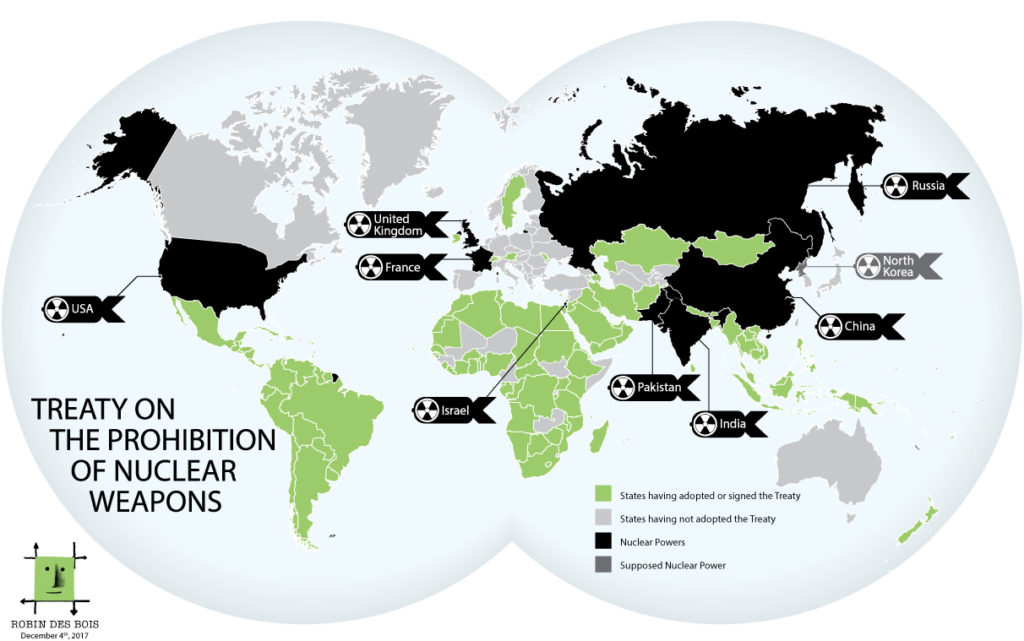Press release and map on the occasion of the Nobel Peace Prize ceremony, Sunday December 10th, awarding Madam Setsuko Thurlow, survivor of the atomic bombing of Hiroshima and Madam Beatrice Fihn, Executive Director of ICAN (International Campaign to Abolish Nuclear Weapons).
At present, 127 States have adopted or signed the Treaty on the Prohibition of Nuclear Weapons. None of the nuclear-armed States took part in negotiations. Japan did not participate in the vote.
Only three States of the European Union as well as Switzerland followed through with their humanistic and pacific convictions. Sweden declared that anything short of adoption would be forfeiting an obligation. Austria proposed to host in Vienna, home to the International Atomic Energy Agency (IAEA) headquarters, the first meeting for State parties. Ireland spoke of « a historic day».
After the treaty was adopted, South Africa declared to have been subject to « incredible pressure » to withdraw from the process. Argentina, Ecuador, Peru and also Iran regretted, while still adopting it, that the Treaty did not include a ban on transit through States parties and within their Exclusive Economic Zone (EEZ) of nuclear weapons belonging to a third State party.
On July 7th, 2017 in New York, just after the Treaty was adopted at the United Nations headquarters, permanent delegations from France, the United States and the United Kingdom published a common statement. The three western nuclear States confirmed that they did not intend to sign, ratify or be parties to the Treaty. According to them, this new international instrument does not change in any way legal obligations and current practices regarding management of nuclear weapons. Following that, the three States decided their ambassadors in Norway would not take part in the 2017 Nobel Peace Prize ceremony.
The three preachers unambiguously declare this Treaty will become a new source of political instability pointing to the North Korean scarecrow while hazing out flaws in the atomic cartel. The United States, in this case, has still not ratified the Comprehensive nuclear Test Ban Treaty.
Under the Treaty on the Prohibition of Nuclear Weapons, it is forbidden to develop, produce, possess, purchase or transfer nuclear weapons. States parties to the Treaty pledge to destroy their atomic weapons or to convert them irreversibly. In some ways the Treaty mirrors the Convention prohibiting the development, production, acquisition, stockpiling, retention, transfer or use of chemical weapons and on their elimination.
******
See also :
“The Bastille Day is nuclear” – July 14, 2017
 Imprimer cet article
Imprimer cet article










